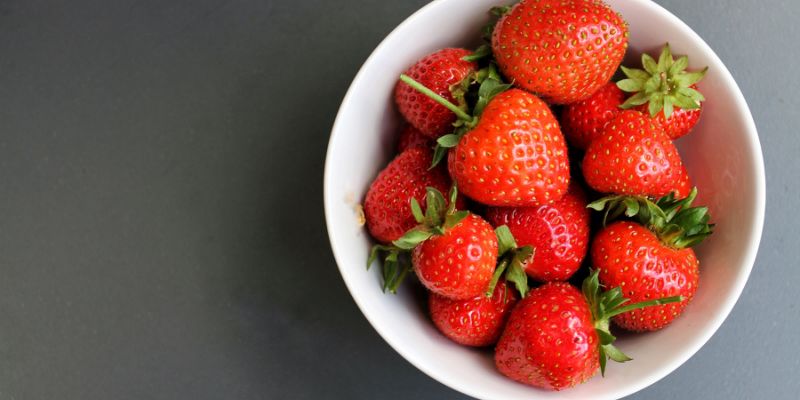Learn about brain health and nootropics to boost brain function
Alzheimer’s disease and diet: Why berries, tea and apples may lower your risk

Regularly sipping tea, biting into an apple or snacking on berries may play a role in protecting adults from cognitive decline and memory problems, a new study has found.
People who ate plenty of foods rich in flavonoids — natural plant chemicals found in many fruits and vegetables — were less likely to develop Alzheimer’s disease and related dementias over 20 years than those who ate few of those foods.
The findings, published this month in the American Journal of Clinical Nutrition , suggest long-term intake of flavonoids is linked with a lower risk of the brain disorder.
It’s more evidence of how important diet can be for brain health, said Paul Jacques, senior author of the paper and a nutritional epidemiologist at the Jean Mayer USDA Human Nutrition Research Center on Aging at Tufts University in Massachusetts.
“There’s no treatment for Alzheimer’s disease so prevention is critical,” Jacques told TODAY.
“We can see that if starting around age 50, you eat a healthier overall diet that includes various sources of flavonoids, such as berries, tea and apples, you can substantially lower your risk of Alzheimer’s disease.”
Researchers are still trying to figure out why flavonoids seem to have a protective effect on the brain. One theory is that it’s known flavonoids have anti-inflammatory properties and one aspect of Alzheimer’s disease and other related dementias is inflammation in the brain, Jacques said.
Three classes of flavonoids — found in berries, tea ( particularly green tea ), apples, pears, onions and red wine — appeared to be especially beneficial.
The Mediterranean diet — already mentioned as a possible factor in helping prevent Alzheimer’s by the National Institute on Aging and brain experts including Harvard neurologist Rudolph Tanzi — is higher in flavonoids. So are any plant-based diets, Jacques noted.
The study was based on data from 2,801 participants in the long-term Framingham Offspring Study, which explored the health of thousands of residents in Framingham, Massachusetts.
As part of the study, the participants — all over the age of 50 for this paper — listed everything they ate. Those foods were then analyzed for flavonoid content and the participants were divided into groups that indicated high or low flavonoid intake.
High flavonoid intake: was equal to about 7.5 cups of blueberries or strawberries; eight apples and pears; and 19 cups of tea per month.
Low flavonoid intake : indicated no berries, about one-and-a-half apples and no tea per month.
When researchers followed the participants for about 20 years to see who developed Alzheimer’s disease , they found low intake of three flavonoid types in particular was linked to a higher risk of dementia, compared to the highest intake. Low intake of flavonols — found in apples, pears and tea — was associated with twice the risk of developing Alzheimer’s disease and related dementias (ADRD).
Low intake of anthocyanins — found in blueberries, strawberries and red wine — was linked with a four-fold risk of developing ADRD.
Low intake of flavonoid polymers — found in apples, pears and tea — was associated with twice the risk of developing ADRD.
The people who gained protection were basically eating an apple and snacking on berries every few days, and drinking a cup of tea every other day or so, Jacques said.
It’s possible to take flavonoid supplements, but it’s “definitely” better to eat the actual foods, he added. The results were also not an invitation to drink more red wine.
“If someone is drinking red wine, there may be some benefit from flavonoids, but you can get even more from teas or the consumption of berries,” Jacques noted.
“The flavonoids are an important component but the message is really about eating a healthy diet — one that has a higher plant-based component… a healthy diet really does have a dramatic effects on people’s health.”
Since the risk of dementia starts to increase over age 70, he advised people who are approaching 50 or just beyond to start thinking about a healthier diet if they haven’t already.